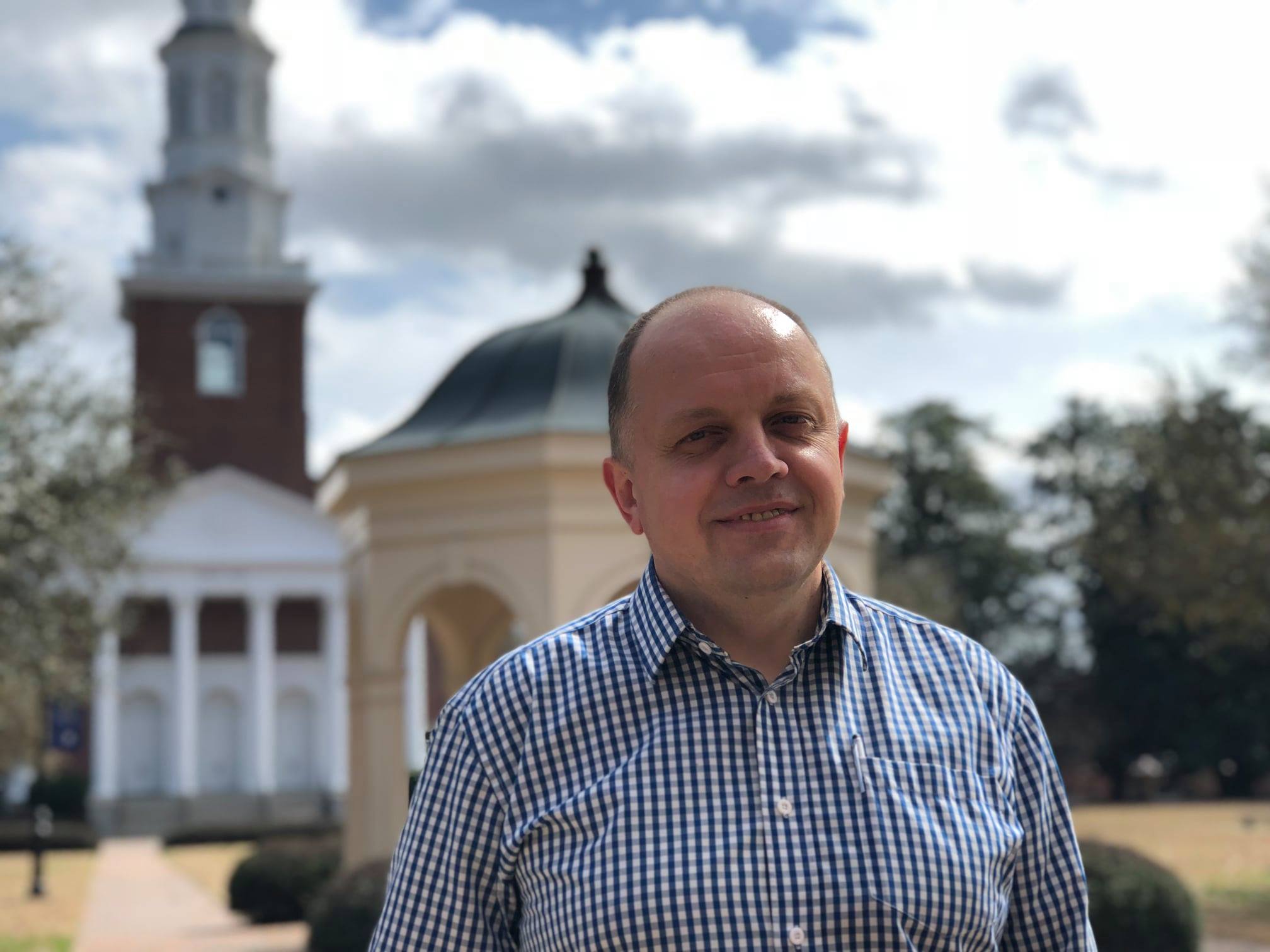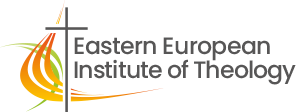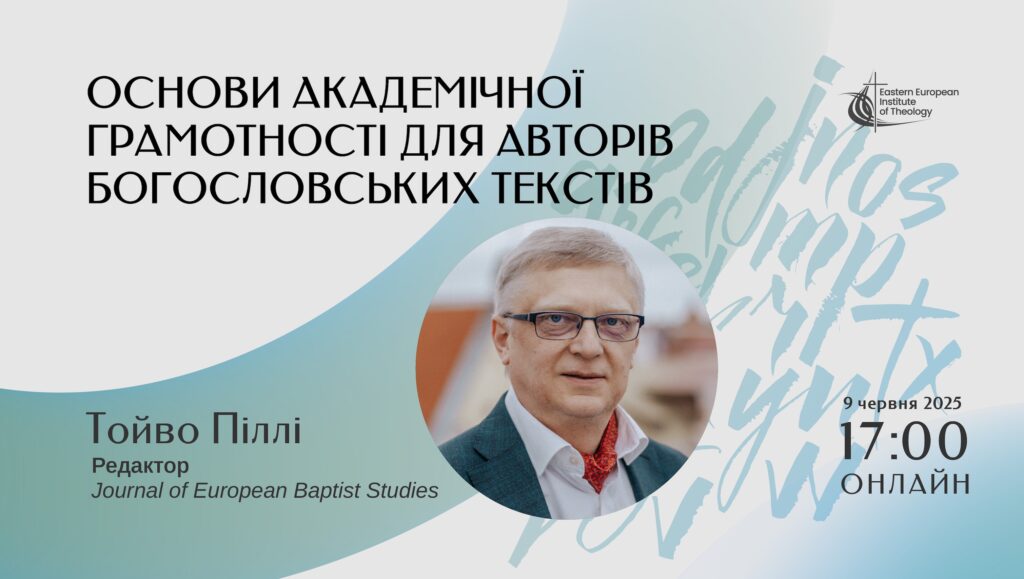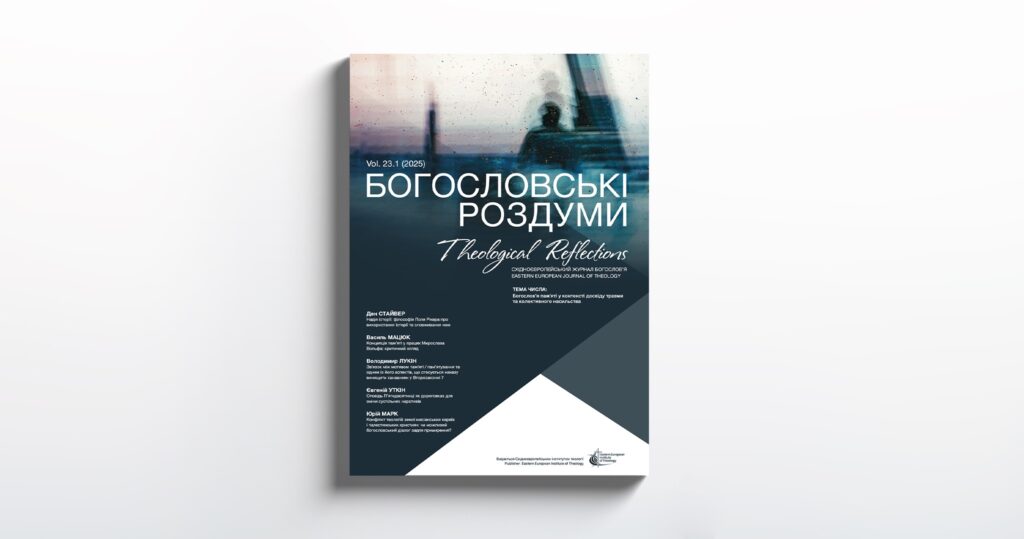Congratulations to Fedir Stryzhachuk on successfully defending his dissertation
Congratulations to Fedir Stryzhachuk on successfully defending a dissertation for the degree of Dr. Hab at the National Pedagogical University of M.P. Dragomanov (Kyiv, Ukraine on 26 October 2020). The topic of the dissertation: «Renaissance of the Doctrine of the Trinity in Modern Western theology». Many congratulations on this huge accomplishment, Dr. Stryzhachuk! Best of luck in all your future endeavors.

In his dissertation work Fedir Stryzhachuk argues that the doctrine of the Trinity is a key doctrine of the Christian theological tradition. The Christian doctrine of God as the Trinity is unique, and it distinguishes Christianity from world and national religions and philosophical concepts of God. However, it can serve as a platform for dialogue with other religious traditions. In the first centuries of the formation of Christian theology, the doctrine of the Trinity was a key doctrine in solving theological and practical problems. However, after the formation and endorsement of the doctrine in the patristic period, the doctrine of the Trinity did not receive due attention, it began to move to the marginal positions of theological discourse, and in the 19th century its deep decline occurred. The marginalization of the doctrine of the Trinity has spread to the church life.
In the twentieth century in Christian theology, the renaissance of the doctrine of Trinity took place. Its initiators were Karl Barth and Karl Rahner. They rediscovered the importance of the doctrine of the Trinity and placed it as a center and constitutive premise of Christian theology. K. Rahner criticized “anti-trinitarian shyness” and called for the return of the doctrine of the Trinity to its proper place. The development of the doctrine of the Trinity in the theology of J. Moltmann, W. Pannenberg, R. Jenson, J. Zizioulas and others in the second half of the twentieth century became the zenith of trinitarian theology. In the theology of J. Moltmann, the social concept of the Trinity has been developed, which later becomes the dominant concept in trinitarian theology. In the social concept of the Trinity the emphasis is on three divine Persons, and the unity of the Trinity becomes a conceptual problem, it is solved by introducing the idea of perichoretic unity of the Father, the Son, and the Spirit. The trinitarian theology of W. Pannenberg has been developed in a wide historical context. W. Pannenberg reconstructed the concept of the origin of divine Persons, applying the idea of self-differentiation, according to which each divine Person receives his identity from another Person. To conceptualize the unity of the Trinity, he introduces the concepts of “spirit”, “force field” and “love”. R. Jenson criticizes the static metaphysical categories of “timelessness”, “simplicity” and “substance” and offers a dynamic trinitarian doctrine of God.
The doctrine of the Trinity is the identification of the Christian God. The Father, the Son, and the Spirit are the characters of the divine drama. The Orthodox theologian J. Zizioulas, relying on the Trinitarian personalism of the Cappadocian Fathers, developed a relational ontology that explains the nature of God, the church and humanity. C. LaCugna criticizes the distinction between theology and economy and considers the Trinity as a mystery of salvation. M. Erickson introduces the doctrine of the Trinity into the theological discussions of evangelical theologians employing the Bible, theological tradition and metaphysics as tools for creating a trinitarian synthesis. T. Torrance creates the ontological concept of the Trinity using a three-stage scientific methodology. The renaissance of trinitarian theology does not belong to the theoretical speculations about God, the doctrine of the Trinity has become to be the paradigm for other areas of theology and Christian practices. Trinitarian theology is actively integrating into ecclesiology. M. Volf enters into dialogue with Catholic, Orthodox and Protestant theologians and creates an evangelical type of ecclesiology in which the Trinity is a archetype for the church. Liberation theologian L. Boff uses the social concept of the Trinity not only as a prototype for the church, but also for the formation of a personality and the whole society. The practice of worship is also influenced by the doctrine of the Trinity and it is aware of its trinitarian nature. In Trinitarian worship, a community of believers inspired by the Holy Spirit participates in the fellowship of the Father and the Son. The worship is a gift from the triune God. Mission is also not only the task of the church. The sending of the Son and the Spirit by the Father to the world is a paradigm expression of divine missionary action. The concept of Missio Dei considers the mission in the first place as the work of God and invites the church to join the mission.



